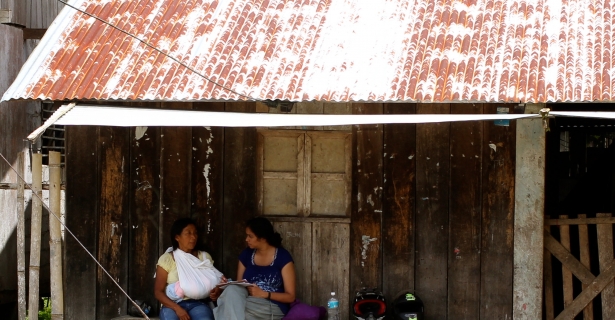Maya Ranganath and Benji Moncivaiz are two students in between their first and second year at the Fletcher School. This summer, they are based in Ecuador interning for the international jewellery business The Faire Collection.
The Faire Collection hopes to improve the overall economic well-being of its artisan partners in Ecuador and Vietnam by selling artisan-made jewellery. Since their beginnings five years ago, they have been carrying out an annual survey with artisans to track various economic indicators, general perceptions of life-satisfaction, and opinions of Faire’s social programs such as scholarships and training programs.
However, while a commendable effort to monitor and evaluate Faire’s social impact, this survey fell into the same trap that research in developing countries often does: taking far too much time; asking questions that are often intrusive and irrelevant; and not including research subjects in the communication of the final results. The Fletcher School’s Market Approaches to Development class was tasked with redesigning the research process. This summer, our internship is focused on refining their work even further, implementing the redesigned assessment, and analyzing and communicating the results.
Our process has been heavily guided by the “Lean Research” principles (http://d-lab.mit.edu/lean-research) developed by the Fletcher School, D-Lab at MIT, and The Feinstein International Center. The Lean Research Initiative seeks to make research in developing countries right-sized, relevant, respectful, and rigorous. We began by defining the key goals for our study - 1) to inform the Faire Collection of the economic well-being of their artisans and 2) give voice to artisans’ ideas about how the Faire Collection can increase their social impact. We eliminated questions that did not directly relate to these goals, and tried to find the simplest questions that would capture the richest data. For example, the old survey included over 15 fairly intrusive questions related to artisans’ expenditures that were time consuming and did not ultimately provide reliable data. We replaced those questions with a 2-minute Poverty Scorecard for Ecuador that objectively and efficiently measured the artisans’ economic well-being. Also, instead of asking each artisan time-consuming qualitative questions, we held focus group discussions that were a far more enjoyable, interesting, and effective way of gathering this data. We also experimented with simply handing out paper surveys for artisans to fill out themselves, and conducted phone surveys to see if these methods could be even better than recurring one-on-one conversations.
This process has been one of trial and error. In order to make the survey more engaging and less like the traditional survey experience, we attempted using a 10-bead necklace for artisans to use to answer questions of proportionality. For example, instead of simply asking “what percentage of your time do you spend working on products for the Faire Collection”, we asked them “if this necklace represents all of your time, how many beads would you say represents the time you spend on products for the Faire Collection?” However, this ended up being far more confusing for the artisans than the original question, so we ultimately dropped it. This showed us first-hand that while it is an important to think about the enjoyment factor of the research subjects, it isn’t “Lean Research” if a flashy activity is inserted into the survey just for the sake of it- it has to ultimately contribute to high-quality data.
Once we had a questionnaire ready, we asked for the opinions of local staff and piloted the questionnaire, which resulted in several more changes which further simplified and contextualized the questions. Once we have written the final report, we plan on sharing the results with everyone interviewed in order to make the time they gave to this survey meaningful, as a cornerstone of Lean Research is that it must be relevant and shared with all parties involved.
As the survey has drawn to a close and we begin our analysis, we are excited to see the results and to see the changes Faire implements as a result. It is our hope that this will be useful not only for Faire to further help vulnerable communities in Ecuador, but also possibly other social businesses as a unique approach to evaluating their social impact.

